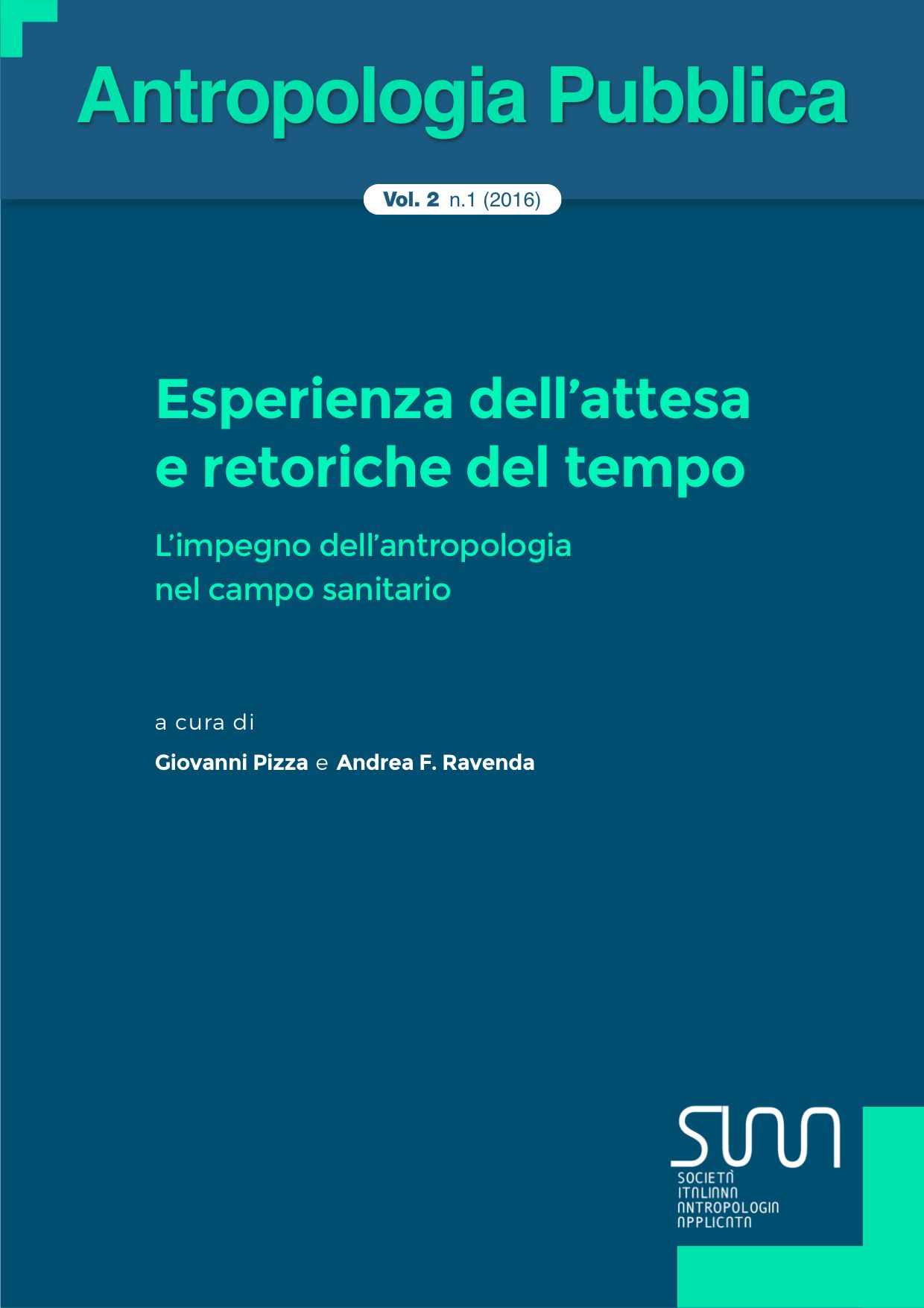Presenza e crisi
Agentività, tempo e sapere in uno spazio sanitario
DOI:
https://doi.org/10.1473/anpub.v2i1.22Abstract
This paper is based on an ethnographic fieldwork that was carried out in Tuscany, Italy, on blood gift and transfusion hospital ward with cord-blood donors, patients and doctors. The research was focused on the epistemological battle between the biomedical knowledge and the logics and the practices of gift in the healthcare space. By using the moral frame of gift, donors can increase their agency and can face the hegemony of clinical discourse. A theoretical change occurs when we analyze the practices of gift and their development in a complex social body like healthcare space is. The representations of actors, the making of ideologies, the production of meaning and the dialogue between different agencies structure the practices and should not be excluded by researchers. The ethnographic data show the need to go beyond the common dichotomies between gift and market, “generalized altruism” and methodological individualism. The plurality of logics characterizing the healthcare space has in the conception of time a further misunderstanding: social actors at stake (the doctors, the patients, the donors) convey different experiences of time (the time of pregnancy, the time of work, the time of wait) that coexist inside the hospital ward. In particular, the biomedical discourse is unable to take into account the different aspects of time in patient’s experience. Thus, we observe different social constructions of time and how their development gives rise to personal, political, psychological, institutional conflicts.



